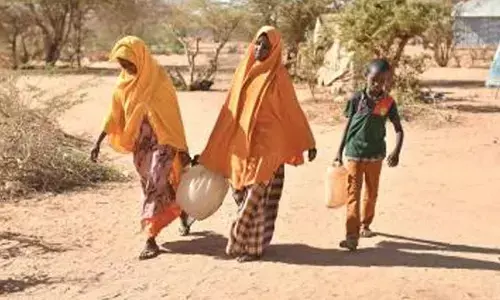What is CBDR principle?

What is CBDR principle. India has announced its “Common but Differentiated Responsibility” (CBDR) approach to global climate change and seeks the developed world to pay the developing world or poorer nations like India and defer the carbon tax model by some time.
India has announced its “Common but Differentiated Responsibility” (CBDR) approach to global climate change and seeks the developed world to pay the developing world or poorer nations like India and defer the carbon tax model by some time. A two-day meeting has begun in Washington to help 17 nations to focus on different approaches and reach a consensus or compromise before the beginning of the UN climate change meet scheduled to be held in Paris in December.
.jpg)
The CBDR principle invokes equity and fairness concerns with regard to the sharing of responsibilities under international environmental law. Its application in the context of climate change throws up a number of challenges on how to distribute responsibilities for mitigation and adaptation actions among States. Though CBDR has enhanced consideration of the equity and fairness sentiments about how to combat climate change, the lack of clarity about its meaning and the manner of its application have hindered effective international cooperation in addressing cli-mate change.
CBDR could be said to represent an attempt to unify States in resolving international environmental problems in a cooperative spirit. A broader enunciation of the principle is the one adumbrated by the International Legal Association which describes it as ‘a duty to cooperate in the achievement of global sustainable development’ and thereby recognising ‘the special needs and interests of developing countries and of countries with economies in transition’, and in particular those countries ‘affected adversely by environmental, social and developmental considerations.’
It would also be important to specify when responsibilities should be triggered under any succeeding instrument to the Kyoto Protocol or through an amendment to the UNFCCC. There is need to expressly state the circumstances under which a State may be required to either transfer technology or make funds available for climate change mitigation and adaptation actions in vulnerable and poor countries. Provisions should also be made as to the initiation of infraction proceedings against a recalcitrant State by an aggrieved State.

















